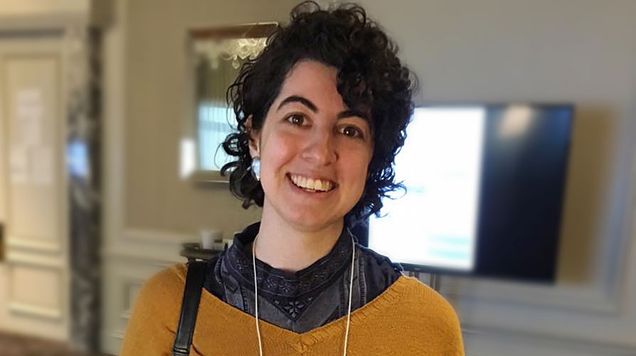Hariri Institute Graduate Student Fellow Defne Abur Wins NIH Grant

Defne Abur, Doctoral Student in the BU Department of Speech, Language, and Hearing Sciences as well as a Hariri Institute Graduate Student Fellow, has been awarded a grant from the National Institutes of Health’s National Institute on Deafness and Other Communications Disorders (NIH/NIDCD) for her work concentrating on “Motor phenotypes of Parkinson’s disease (postural instability and gait or tremor-dominant Parkinson’s).” She credits her affiliation as a Graduate Student Fellow at the Hariri Institute as a significant factor in her grant application.
About the NIH/NIDCD
The National Institute on Deafness and Other Communication Disorders (NIDCD), part of the National Institutes of Health (NIH), conducts and supports research in the normal and disordered processes of hearing, balance, taste, smell, voice, speech, and language. Established in 1988, the NIDCD focuses on supporting biomedical and behavioral research in the normal and disordered processes of hearing, balance, taste, smell, voice, speech, and language. The institute also supports research related to disease prevention and health promotion as well as addressing unique biomedical and behavioral problems associated with people who have communication impairments or disorders. The NIDCD also supports efforts to create devices that assist individuals with hearing loss or other communication disorders.
About Defne Abur and Her Research
Defne graduated from Smith College with a B. S. in Engineering Science with Biomathematics Concentration. She has been the recipient of several awards including, the ASH Foundation New Century Doctoral Scholarship, Academy of Neurologic Communication Disorders and Sciences (ANCDS) Conference Student Fellow Award, Dudley Allen Sargent Research Fund Award, and the Raymond H. Stetson Scholarship in Phonetics and Speech Science–Honorable Mention. Her research focuses on individuals with Parkinson’s disease (PD), where approximately 90% develop a motor speech disorder called hypokinetic dysarthria. There is evidence that speech impairments in PD may relate to motor symptoms, but the relationships are not transparent. Recent work suggests that there are two distinct motor phenotypes of PD: postural insufficiency and gait dominant (PIGD) and tremor dominant (TD). This project will investigate longitudinal changes in speech for the two motor phenotypes of PD to yield recommendations for meaningful objective measures in future work.